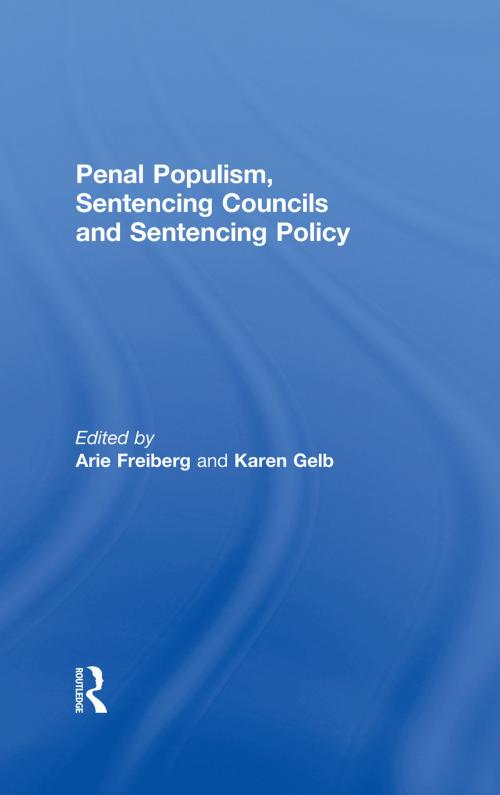Penal Populism, Sentencing Councils and Sentencing Policy
Nonfiction, Social & Cultural Studies, Social Science, Crimes & Criminals, Criminology| Author: | ISBN: | 9781317821830 | |
| Publisher: | Taylor and Francis | Publication: | March 5, 2014 |
| Imprint: | Willan | Language: | English |
| Author: | |
| ISBN: | 9781317821830 |
| Publisher: | Taylor and Francis |
| Publication: | March 5, 2014 |
| Imprint: | Willan |
| Language: | English |
Public outcries and political platforms based on misinformation and misconceptions about the criminal justice system and current sentencing practice occur all too often in democratic societies. Penal Populism, Sentencing Councils and Sentencing Policy attempts to address this problem by bringing together important contributions from a number of distinguished experts in the field.
Penal Populism presents theoretical perspectives on the role of the public in the development of sentencing policy. It places particular emphasis on the emerging role of sentencing commissions, advisory councils or panels in a number of English speaking countries: Australia, New Zealand, the United States, the United Kingdom, Scotland and South Africa.
The book explains, expands and develops the existing literature that looks at public attitudes to justice and the role that the 'public' can play in influencing policy. Written in a scholarly yet accessible style, Penal Populism asks the critical questions: should 'public opinion', or preferably, 'public judgment' be relevant to court decision-making, to institutional decision-making and to the political process? And if so, how?
Public outcries and political platforms based on misinformation and misconceptions about the criminal justice system and current sentencing practice occur all too often in democratic societies. Penal Populism, Sentencing Councils and Sentencing Policy attempts to address this problem by bringing together important contributions from a number of distinguished experts in the field.
Penal Populism presents theoretical perspectives on the role of the public in the development of sentencing policy. It places particular emphasis on the emerging role of sentencing commissions, advisory councils or panels in a number of English speaking countries: Australia, New Zealand, the United States, the United Kingdom, Scotland and South Africa.
The book explains, expands and develops the existing literature that looks at public attitudes to justice and the role that the 'public' can play in influencing policy. Written in a scholarly yet accessible style, Penal Populism asks the critical questions: should 'public opinion', or preferably, 'public judgment' be relevant to court decision-making, to institutional decision-making and to the political process? And if so, how?















